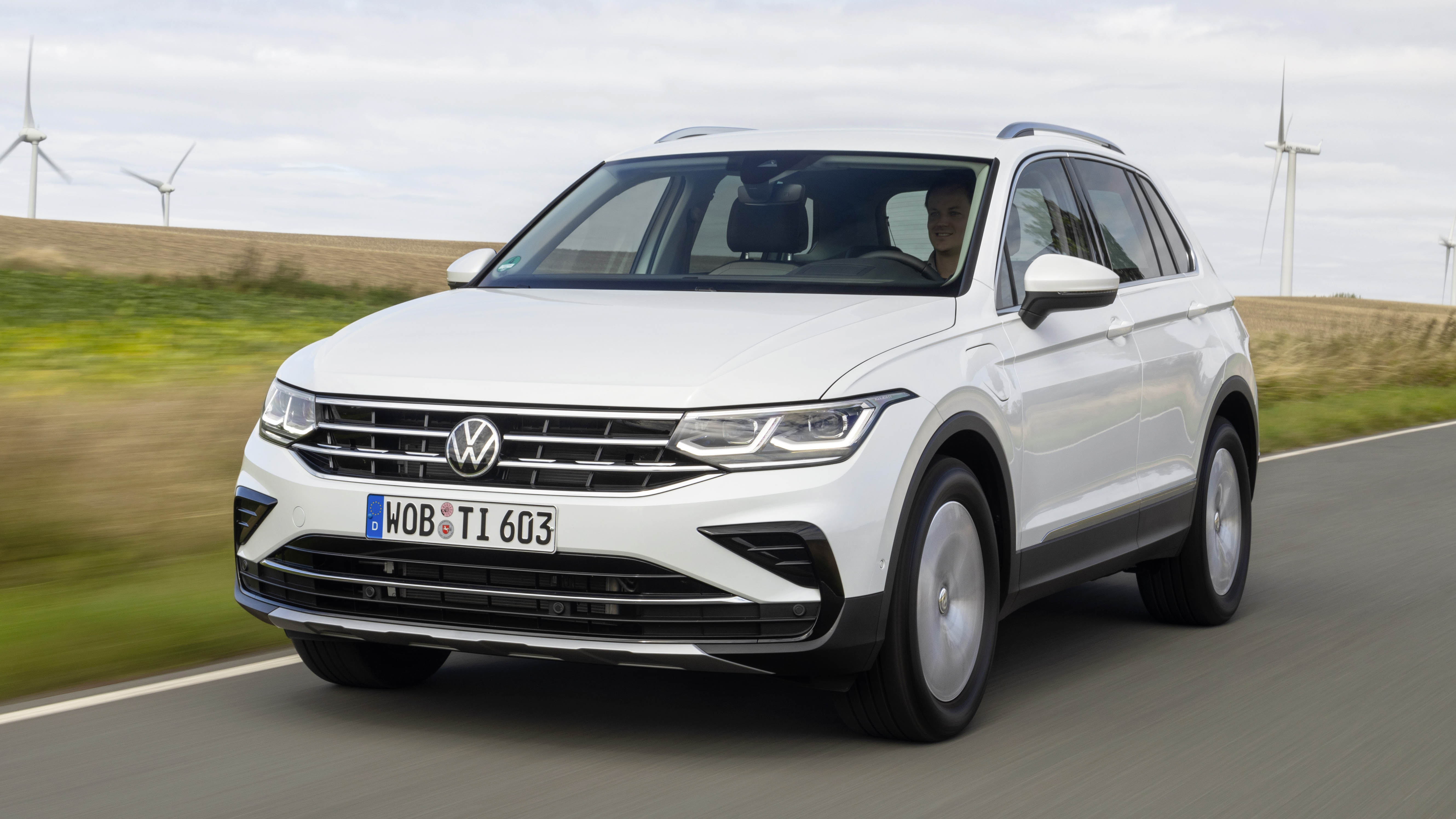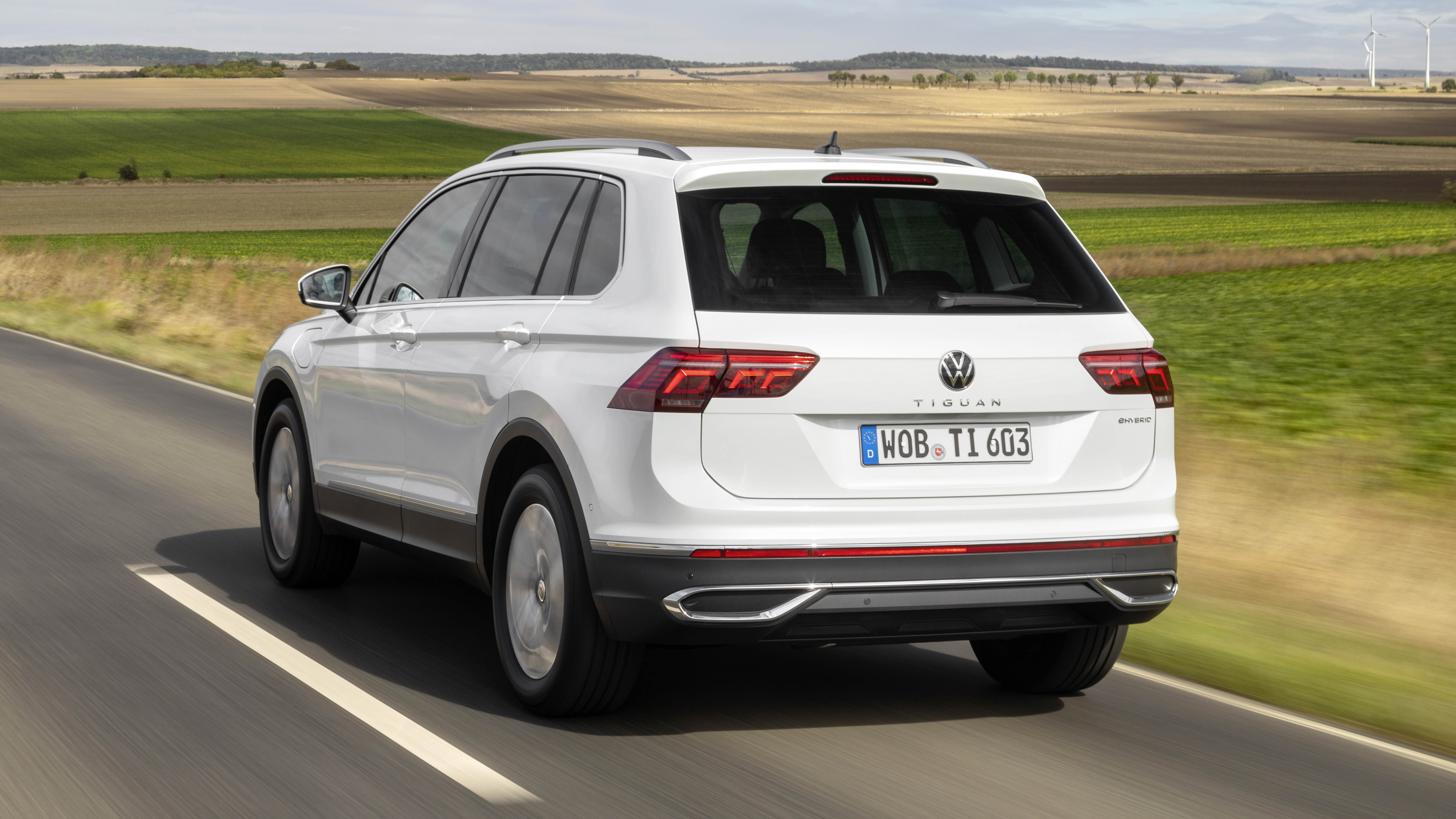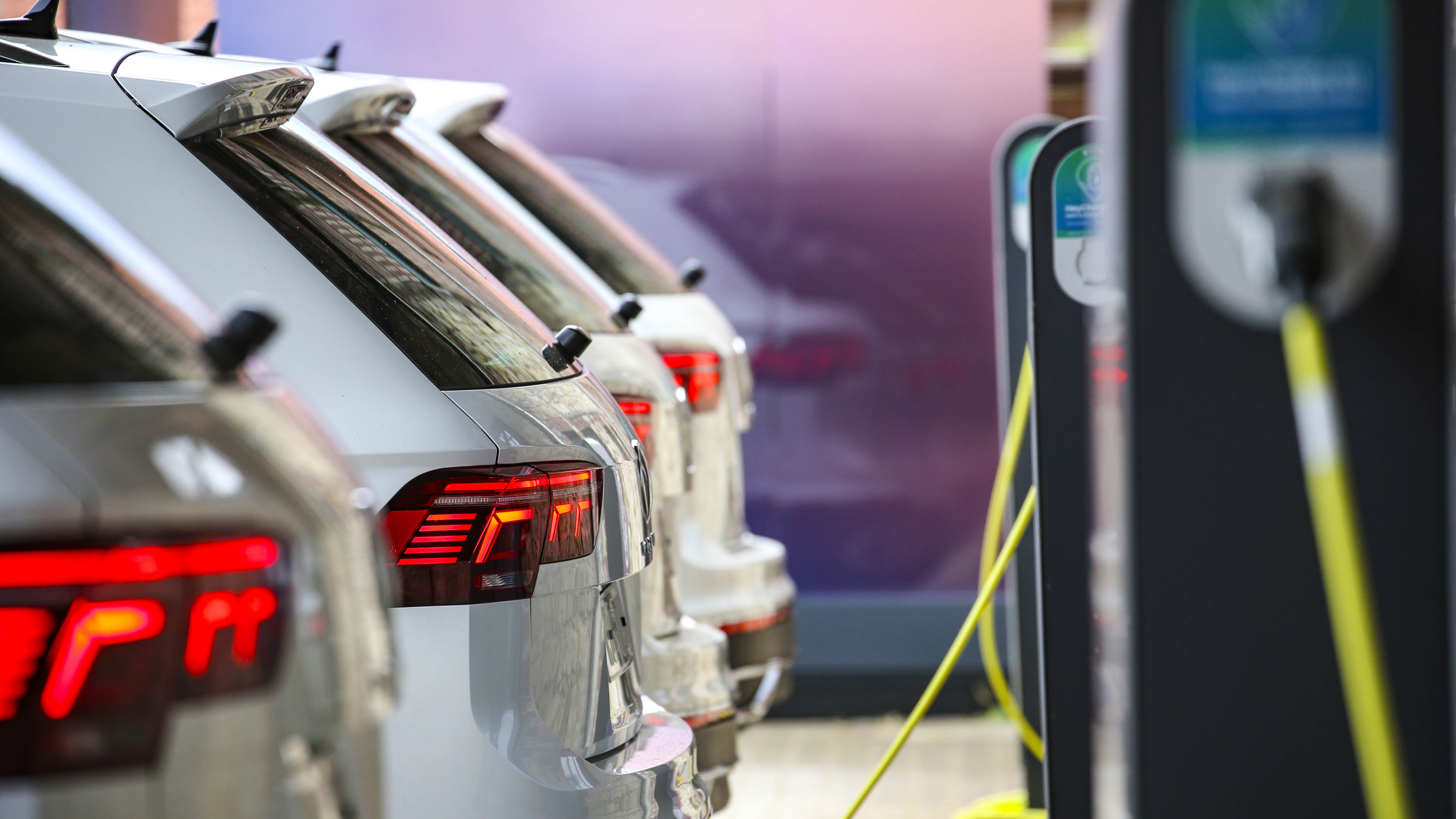
SPEC HIGHLIGHTS
- Battery
Capacity10.4kWh
- BHP
245bhp
- 0-62
7.5s
- Max Speed
127Mph
Yet another VW Group SUV? Yawn…
Correct on the first point, but don’t switch off just yet. This is the brand-new Tiguan eHybrid – essentially the powertrain from the Mk8 Golf GTE slotted into the newly-facelifted version of Volkswagen’s best-selling SUV.
Not quite ready for that all-electric ID.4? The plug-in eHybrid could be your ideal stop-gap solution.
Okay, so what are the stats?
The eHybrid’s combination of trusty 1.4-litre turbocharged petrol engine and 85kW electric motor means a total output of 242bhp and 295lb ft of torque, making it second only to the 316bhp R in the Tiguan power stakes. All of the grunt goes through the front wheels alone and gets the eHybrid from 0-62mph in 7.5 seconds.
The battery is a 13kWh job and provides an all-electric range of around 31 miles at speeds of up to 81mph.
Isn’t that all pretty standard fare these days? What else is interesting?
Well, provided you’ve got enough charge in the battery, the eHybrid will automatically start in its all-electric E-MODE, because VW reckons your average daily journey can be covered on electric power alone. You’ve then got a GTE button that combines the two motors for maximum boost, but perhaps the most interesting drive mode (oh yeah, we went there) is actually the classic Hybrid mode…
In said mode, if you’re not using the sat nav or you’ve got Waze on Apple CarPlay, you can manually select a percentage of the battery life that you’d like the car to save for the final part of your journey – for example if your last 10 miles involves driving through town after a motorway slog, you might want 40 per cent of your charge to be held back.
Even more clever, though, is if you put your destination into Volkswagen’s navigation system, the Tiguan will automatically balance your EV and ICE running-time throughout the drive. The car’s brain analyses the types of road you’ll be travelling on and even checks out the topography to deploy electric power in the most efficient manner possible, whilst also maximising range. Clever stuff.
Top Gear
Newsletter
Thank you for subscribing to our newsletter. Look out for your regular round-up of news, reviews and offers in your inbox.
Get all the latest news, reviews and exclusives, direct to your inbox.
Sounds impressive. Does it work?
It genuinely does. Volkswagen won’t quote any official figures until the eHybrid goes on sale next year, but on a recent test that looked something like town – country roads – motorway – town, we managed well over 50mpg with some spirited driving thrown in. There’s also something to be said for the smugness that comes with navigating through a city while producing zero emissions at the end of a long and painless journey.
In this form the Tiguan is properly relaxing to drive too. It’s well insulated from road noise, the handover between electric and internal combustion is as smooth as you’ll find in the PHEV game and the six-speed DSG gearbox handles changes without much fuss.
Oh, and despite the extra weight provided by that 135kg battery pack, it never feels too firmly sprung unlike some rivals. In both comfort and normal modes there’s a bit of body roll in the corners and plenty of ability to cope with rougher surfaces.
What’s it like inside?
Well, we’ll soon be bringing you a full review of the facelifted Tiguan, but there’s a couple of obvious improvements over the previous generation – the central touchscreen being the most in-your-face of which.
The brilliant 10-inch digital cockpit is standard on all eHybrids too, although unlike the Golf GTE which it borrows tech from, the eHybrid can be had with multiple different trim levels. The unnamed base-spec, the slightly plusher ‘Life’ spec or the top tier ‘Elegance’ and ‘R-Line’ trims are all available. Sadly though, all of those come with touch sensitive climate controls. Booo.
Any other drawbacks then?
As you can imagine, the eHybrid isn’t the most engaging thing to drive, but its practicality is also compromised by the powertrain. Oops. With the battery under the rear seat, the fuel tank is pushed back and boot space drops to 476 litres – 139 litres less than the ICE-engined Tiguans. That’s a fairly big hit for a family SUV. Still feels roomy in the back seats, though.
You’ll also need to be sure that the sums associated with a plug-in hybrid work for you, especially because the eHybrid will no doubt carry a premium for its electrification. Still, at least you can’t knock it for being boring.
7/10
Featured

Trending this week
- Car Review
BMW 1 Series
- Top Gear's Top 9
Nine dreadful bits of 'homeware' made by carmakers






